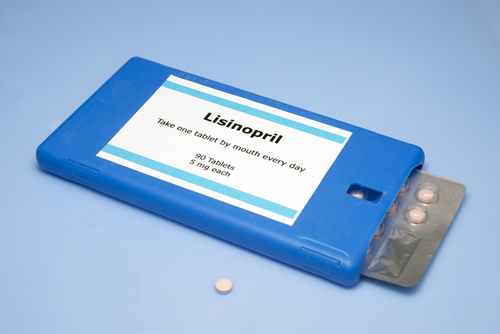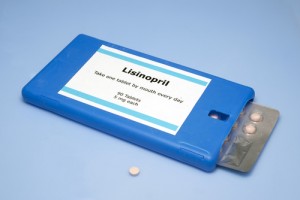Multiple Sclerosis Trial for Lisinopril Granted $1.4 Million in New Funding From NCATS
Written by |

 Transparency Life Sciences, LLC (TLS), the first clinical-stage drug development company based on open innovation in the world, recently received a $1.4 million Small Business Innovation Research (SBIR) grant intended for its phase IIa proof-of-concept study, which is assessing the utility of the ACE inhibitor lisinopril as an adjunctive treatment for patients with multiple sclerosis. The Repurposing a Generic ACE Inhibitor to treat Multiple Sclerosis funding was granted by the National Center for Advancing Translational Sciences (NCATS) of the U.S. National Institutes of Health (NIH).
Transparency Life Sciences, LLC (TLS), the first clinical-stage drug development company based on open innovation in the world, recently received a $1.4 million Small Business Innovation Research (SBIR) grant intended for its phase IIa proof-of-concept study, which is assessing the utility of the ACE inhibitor lisinopril as an adjunctive treatment for patients with multiple sclerosis. The Repurposing a Generic ACE Inhibitor to treat Multiple Sclerosis funding was granted by the National Center for Advancing Translational Sciences (NCATS) of the U.S. National Institutes of Health (NIH).“This project advances NCATS’ mission to innovate in both the scientific and operational aspects of translation,” said NCATS Director Christopher P. Austin, MD. “It aims to make drug repurposing more efficient and better measure patient-relevant clinical trial outcomes, all in the context of a company that operates in the new arena of open innovation drug development.”
TSL is developing lisinopril, which is a widely used generic antihypertensive, and has licensed its intellectual property with exclusivity from Stanford University, regarding the use of lisinopril as a treatment for multiple sclerosis. The George A. Zimmermann Professor of Neurology and Neurological Sciences & Pediatrics at the Stanford School of Medicine, Dr. Lawrence Steinman, who is also a co-founder of Transparency and Chair of TLS’s Scientific Advisory Board, has been leading the research.
The clinical trial is being conducted at the Icahn School of Medicine at Mount Sinai, with Fred D. Lublin, MD, the Saunders Family Professor of Neurology and the Director of the Corinne Goldsmith Dickinson Center for Multiple Sclerosis, as principal investigator. “Preclinical data suggest that lisinopril used as an adjunctive therapy may have the potential to improve the efficacy of current MS treatments while reducing costs. I welcome the opportunity to test this hypothesis, along with Transparency’s innovative approach to conducting clinical trials,” the researcher said. In addition, the treatment has been cleared by the U.S. Food and Drug Administration (FDA) with an Investigational New Drug (IND) application.
“We are thrilled that NCATS is supporting this pioneering study designed to harness the wisdom of the crowd and the promise of telemonitoring technologies, with a goal of making clinical trials more patient-centric, more transparent and dramatically less costly,” said the CEO of Transparency Life Sciences, Tomasz Sablinski, MD, PhD. “Our model is applicable to new chemical entities, as well as to repurposed drugs such as lisinopril, where safety is well documented, but low perceived return on investment has discouraged further clinical development. Using the cost-effective TLS approach to establish clinical proof-of-concept could make it possible to test many more repurposing candidates in the future.”
[adrotate group=”4″]
TLS has also established a partnership with the comprehensive provider of telemedicine services, AMC Health, for the study, which may have assisted in securing NIH funding for the lisinopril project. AMC Health will deploy its mobile technology to enable video study visits at the patients’ homes, collect biometric data, as well as the remote assessment of a primary MS endpoint.
The clinical-stage drug developer has been engaged not only in telemonitoring, but also in crowdsourcing, which was crucial for the lisinopril study. TLS developed the clinical protocol for the lisinopril study with crowdsourced input from MS researchers, physicians and patients, and it was designed in order to minimize the need for patient site visits, by relying primarily on telemonitoring and video interactions with subjects.





